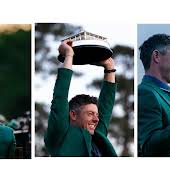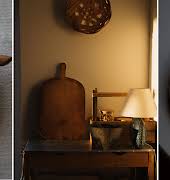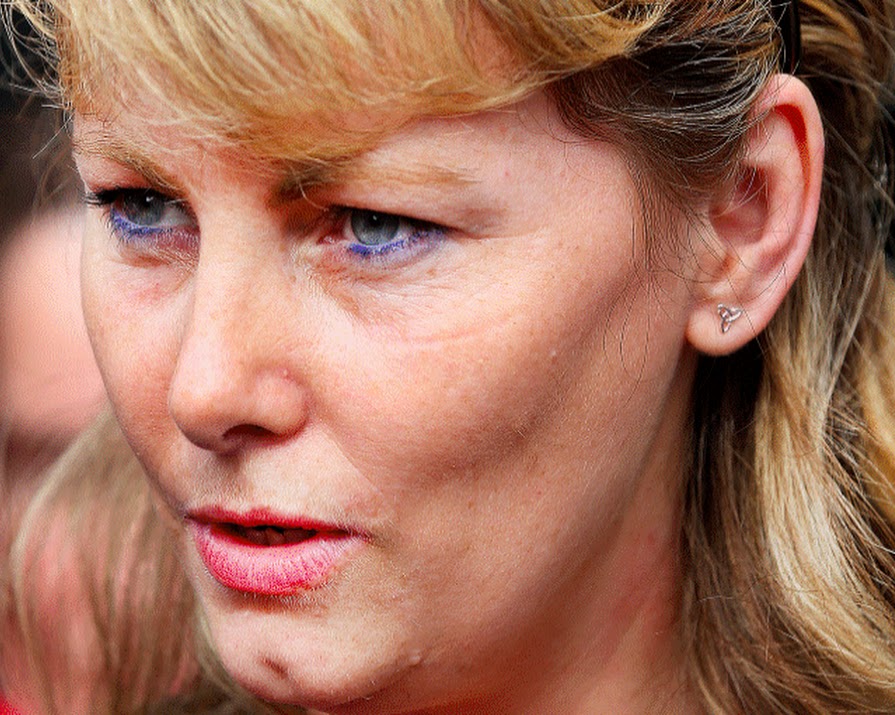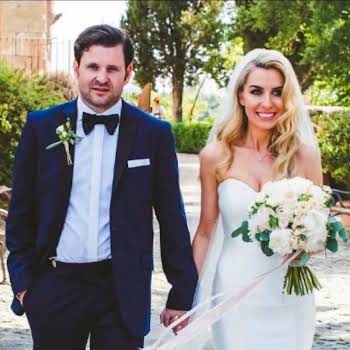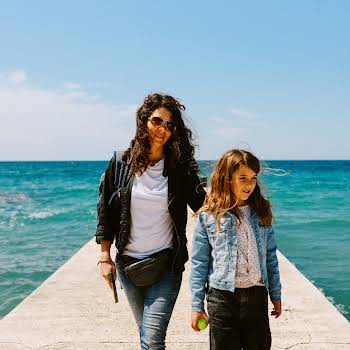
By Amanda Cassidy
08th Oct 2018
08th Oct 2018
Today five children are coming to terms with the loss of their mother – a loss that could probably have been prevented. All cancer is devastating but the ‘what-ifs’ in the case of Emma Mhic Mhathúna were particularly heartbreaking. Amanda Cassidy reports on the importance of the HPV vaccine and asks what if we could prevent more deaths by offering it to our sons as well as our daughters.
What if she’d known earlier? What if she had treatment? What if Emma was a cancer survivor instead of a cancer victim? What if five children still had a mother? Tributes are pouring in for Emma Mhic Mhathúna– one of the women at the centre of the Irish cervical cancer scandal – who passed away over the weekend. The 37-year old was diagnosed with cervical cancer in 2016 after she was wrongly given the all-clear from a Cervical Check smear test in 2013. There is no guarantee that the first signs of cancer would have been caught, but all anyone can think of is what if they were?
Emma’s story is one of bravery, devastation, disappointment and inspiration. She lost her life, but not without first fighting for her truth.
The efforts of that fight mean her children will be financially secure (she took legal action and was awarded €7.5 million) – little comfort to them right now.

The Health Minister was one of the first to issue a statement following Emma’s death at the age of just 37. Simon Harris said we “must beat this cancer with vaccination and screening” and vowed he was “determined to build a programme worthy of women like Emma”. The Cancer society commended Emma for her “tremendous bravery” and praised her for raising awareness about the importance of preventative measures like the HPV vaccine.
“Through vaccination and the best possible screening programme for women, we can potentially eliminate cervical cancer in Ireland within a generation. As part of Ms Mhic Mhathúna’s legacy, we must all now strive to do all we can to make this a reality.”
But as well as making sure the systems are set up to save people from this cancer actually work, we also need to rethink why we are only offering the HPV vaccine to our daughters. What if we could be doing more?
Newstalk presenter and GP Ciara Kelly used her platform yesterday to urge parents to vaccinate their children (not just daughters) to protect them from this “terrible disease”.

A genderless disease
If Emma’s legacy is to save more lives, then what if the government rolled out the HPV vaccine to boys too?
“Had the HPV vaccine been available when I was a boy, I believe I wouldn’t have developed throat cancer more than 30 years later.” Jamie Rae was diagnosed with throat cancer in 2010. He says the lack of information available about the causes and prevention of HPV-related illness is concerning. In fact, it prompted him to set up a support charity for those who needed answers – the Throat Cancer Foundation. He has now been campaigning for many years to ensure boys receive the same vaccinations as girls. “HPV is ubiquitous, and potentially very dangerous. It can cause cervical cancer in women but it is linked to 5% of all cancers worldwide, including anal, penile and mouth cancers that men can develop. I’m basing this on the overwhelming majority of research I have seen over the years and countless experts I have spoken to. That’s why I’m desperate for boys to be able to receive it.”
In July, the British Government announced that all boys aged 12 and 13 in England are to be vaccinated against HPV. The girl’s programme there has already reduced the prevalence of the main cancer-causing types of HPV by more than 80%. Department of Health spokesperson, Steve Brine said he is delighted that this move means more people will be protected from this devastating disease;
“Any vaccination programme must be firmly grounded in evidence to ensure that we can get the best outcomes for patients, but as a father to a son, I understand the relief that this will bring to parents.”

Dispelling the myths
In Ireland, around 540 cases of cancer associated with HPV infection are diagnosed each year in patients in Ireland. We have one of the highest cervical cancer rate in western Europe, with 90 deaths every year. This summer our own health watchdog, HIQA revealed that it has started a public consultation process to see if the HPV vaccination programme should be extended to teen boys in this country. Currently, the vaccine is only offered to girls aged 12-13, which is usually given in their first year of secondary school. The reason it is given at this age is because vaccinating before the start of sexual activity is most effective in preventing HPV infection.
But what exactly is HPV? Human Papillomavirus is a common sexually transmitted disease that can lead to cervical, vaginal, anal, penile, mouth and throat cancers. There are hundreds of strains of HPV virus, and most are harmless, but around 12 types can cause cancer. The HSE says that more than 80% of Irish women contract HPV, usually in their late teens or early 20s.
In most cases, the virus clears up on its own and does not have any symptoms. But in some cases, it can lead to genital warts or go on to form some cancers. It is a viral infection which is mostly passed on through heterosexual contact – which is why it is important to consider boys as equal players in this process.
What if we went with the best worldwide practice?
Dr Julie Kearney is a family GP in South Dublin. She says that giving the HPV vaccine to both boys and girls is considered best worldwide practice.
“The HPV vaccine is currently recommended for males and females by the Advisory Committee on Immunisation Practices in the US and as such on the UpToDate database used by doctors worldwide”
“It would be beneficial for boys for a number of reasons, although the cost-benefit ratio is not as good for males as it is for females. In resource-limited jurisdictions, it is recommended that HPV vaccination be solely given to girls. It could prevent anogenital and penile cancers (90% of which are caused by HPV 16 and 18) along with some forms of oropharyngeal cancers in males but also 90 %of genital warts (90% of genital warts caused by HPV 6 and 11). There would also be a benefit to the general population through herd immunity – therefore decreasing the level of HPV in the community.”
So how resource-limited is Ireland? And what are the cost implications for rolling out this vaccine for boys too? HIQA says that if that service was rolled out to boys of the same age, it is likely to cost around €2m a year. As HPV vaccines are relatively new, they are still more expensive than established vaccines against diseases such as measles or tetanus. That is why the budgetary implications of expanding the programme to all are being closely studied.
What if we could protect more people?
But extending the vaccination programme to boys here won’t just help prevent such diseases, it will also protect more gay men who can get protection from the virus at a younger age. As unvaccinated men have sex with other unvaccinated men, they are effectively left without any protection from HPV- leaving them much more vulnerable to infection.
There is also precedence proving success in allowing boys to be vaccinated. Austria, Australia, Canada, New Zealand and the US already offer the vaccine to both girls and boys. In fact, Australia is now on track to become the first country to practically eradicate cervical cancer because of the vaccine. Since 2007, all girls aged 12 or 13 in Australia have been offered a free HPV vaccination. A decade later, the proportion of 18- to 24-year-old women with HPV has fallen from 22.7 to 1.5 per cent.
In Italy, the case for vaccinating boys and girls is going from strength to strength too. Professor Paolo Bonanni from the University of Florence says there should be no discrimination based on gender when it comes to saving lives.
“It has progressively become clear that males are also affected by important and sometimes lethal HPV-related diseases and – unlike women – they are not covered by any screening programme. In the meantime, the decrease in vaccine costs and the reduction of the recommended number of doses in teens have made HPV vaccination of boys an important and cost-effective measure.”
What if it makes my child sick?
And what about that controversy over the vaccine itself? Some parents have resisted the cervical cancer vaccine because they felt it may cause reactions and quite devastating side effects. Others think it could encourage sexual activity among teens. But research has refuted both those beliefs. Many realise the benefits outweigh the risks and that HPV infection rates are down which means it is working.
At the end of the day, it comes down to risk assessment. The HPV vaccine used in the school programme is called Gardasil. The vaccine is sanctioned and supported by the World Health Organisation. Their most recent study, World Health Organisation (WHO) review of studies, reported that the vaccines had an efficacy rate of between 90% and 100% in preventing HPV infection. The vaccine can prevent HPV for a number of years after being administered, but it does not cure it in existing cases. From September each year, the HSE offers the vaccination to all girls in the 1st year of second level schools. But following a prominent anti-vaccine campaign, uptake rates fell dramatically from highs of 87% to lows of 50%. Some parents feel nervous about reports of side effects that include chronic fatigue, nausea, swollen joints, gastrointestinal problems, drowsiness and menstrual disorders.
Dr Vaz is a head and neck surgeon at the University College of London. He told the BBC that he paid £450 to vaccinate his three sons. “You hope with herd immunity it’ll work and protect the boys, but that doesn’t work. People can fall through the net, though the net has been cast reasonably wide. It currently doesn’t protect everyone.”
An informed decision
According to the HSE, from 2010 when the vaccinations started here in Ireland – 590,694 doses have been administered to first and sixth-year female secondary school students. This means that just 0.18% of people reported reactions. Over 200 million doses of the HPV vaccine have been given around the world, according to the HSE.
No serious side effects in any country can be scientifically attributed to the vaccine. In addition, the WHO stands by it. In fact, they were pretty blunt when it came to its stance: “The benefits of HPV vaccines continue to outweigh their risks”
A very personal choice
Today, five children in Co Kerry are mourning the loss of their mother. More than 200 women are living with the knowledge that their cancer could have been prevented but wasn’t. So many people whose lives could have turned out differently. Of course, we are all entitled to hesitate when it comes to our children’s health. It is every parent’s prerogative to question, scrutinise and investigate all aspects of our child’s well-being. Our responsibility includes informing ourselves (but with real medical advice rather than social media opinion). This vaccine has been rolled out immunise against a potentially harmful virus which could prevent certain types of cancer development, and therefore save lives. I believe our sons should be given the same level of protection before we have to endure more preventable diseases devastating more young lives. What if we could save them all?
You will find more information on the cervical cancer vaccination programme for Irish schools here.

